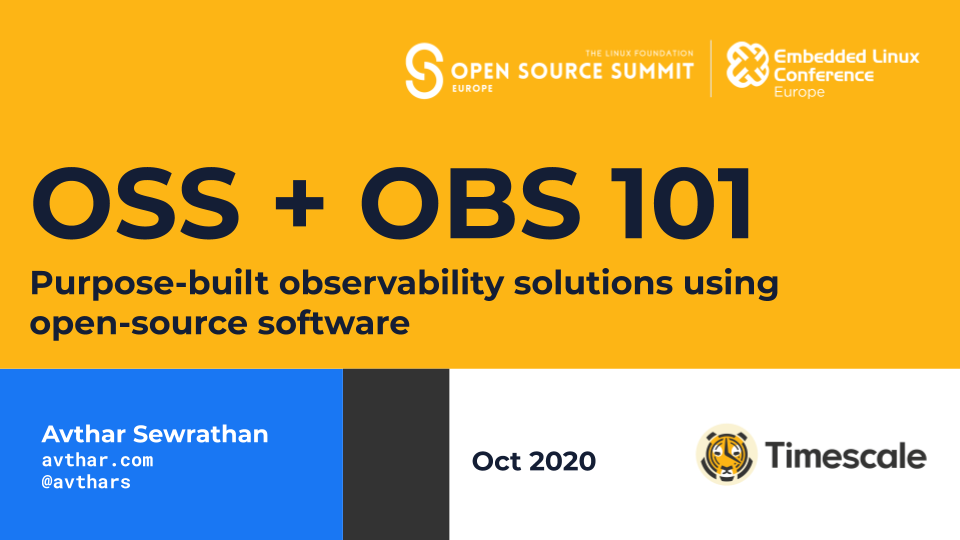Purpose-built observability solutions using open-source software (Open Source Summit Europe 2020)
Talk Recording, Slides and Resources from my talk at Open Source Summit Europe 2020
I had the honor to speak on the topic "Purpose-built observability solutions using open-source software: Lessons from the Field" at the Open Source Summit Europe 2020, an international technology and software conference.
You can find my talk recording, slides and more information about the talk below.
Talk Recording
You can watch the full talk on Youtube at this link.
Slides
These are the slides I used in the talk
These are summary slides for you to read, print or annotate
The slides include links to resources for you to explore so be sure to look out for those near the end.
Why talk about this topic?
In my work as a developer advocate, I’ve worked with many DevOps practitioners who’ve turned to open source products to build their own bespoke observability solutions. I wanted to share their stories and hard-earned lessons and help others get an overview of how they can build similar systems using all open source components.
Abstract
Are proprietary monitoring solutions too clunky, rigid and expensive for the specific needs of your fast moving team? Join me as I detail how data collection, storage and visualization can be accomplished in simple, and cost effective ways using ALL open source software!
You’ll hear stories from the field of how 3 different companies that I’ve worked with at Timescale have gone about implementing their open-source observability stack, how their configurations have fared and the pros and cons of each approach.
We’ll also architect an application monitoring system using tools like Prometheus, PostgreSQL and Grafana. All of these technologies are open-source and provide the flexibility and extensibility to scale with your team’s needs.
You’ll walk away with the foundation for how to implement your own observability system using open source software, as well as inspiration for how to proceed based on the real world experience of others.
Acknowledgements
I’m grateful for the help of folks on the amazing Timescale team, like Lacey Butler, Prashant Sridharan and Ryan Booz.
This talk would also not be possible without the contributions of the engineers I interviewed for the talk: Sean Sube (WhenIWork), Miguel Farrajota (Jungle) and Sam Gichohi, Lee Hampton and Anthony Dodd (Timescale).

